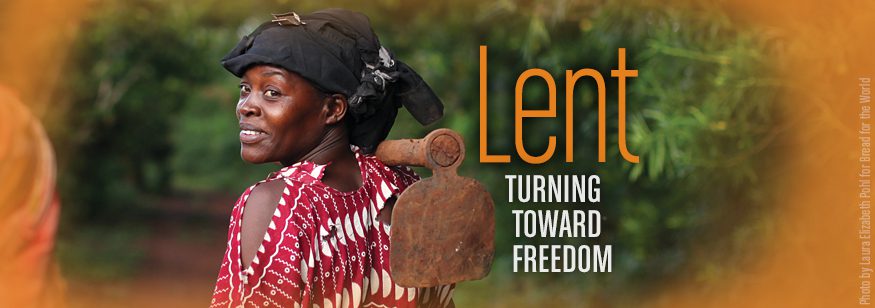Editor’s note: This Lent season, Bread Blog is running a series of devotionals written by staff, alumni, and friends of the San Francisco Theological Seminary, which is affiliated with the Presbyterian Church (U.S.A.).
By Sarah Chivington-Buck
Jesus’ Sermon on the Plain has always bothered me. He says such extreme and impossible things that I alternate between totally ignoring it and feeling guilty about how far I fall short of the ideals he puts forth. In the passage today, I am OK through praying for people who hurt you. But turning the other cheek? No thanks. If people are hurting me, I am going to either stop them or get away from them. Turning the other cheek seems like terrible advice for Jesus to give.
I recognize that much of Jesus’ teachings should upset, anger, challenge, and confuse us. So I don’t want to try to tame his difficult words. But I do want a way to engage them that doesn’t make me shut down. Author Brian McLaren suggests that, in this sermon, Jesus is proposing a third way — something other than compliance or defiance. When the Roman soldier slaps you across the face just to remind you who is in charge, you don’t have to sulk away scared or hit him back. McLaren writes, “Jesus offered [the original readers] a creative alternative: stand tall and courageously turn the other check, he said. In so doing, they would choose nonviolence, strength, courage, and dignity…and they would model a better way of life for their oppressors, rather than mirroring the violent example they were setting” (We Make the Road by Walking, p. 133).
I can get behind trying to find creative alternatives to the violence that surrounds us, both interpersonally and on a larger scale. How can we respond in such a way that most humanizes the people who are doing harm? How can we find freedom from hatred and the desire for revenge? How can we release our tight grasp on our possessions so that we can live generously?
Those are good questions for us to ponder, but undoubtedly we will all fall short of loving others well at times. All of us will fail to live up to the high standard of non-violence and peace that Jesus sets. This passage tells us that God is kind to the ungrateful and wicked. That isn’t some group of others. Sometimes we are the ungrateful and wicked ones. The good news is that God is mercy to the very core, that God loves all people at all times. And there also lies freedom, so that when we fail to find the creative alternative, when we are the ones in need of mercy, we can fall into the grace-filled arms of the God who loves us anyway.
Sarah Chivington-Buck is pursuing a Master of Divinity at San Francisco Theological Seminary.



